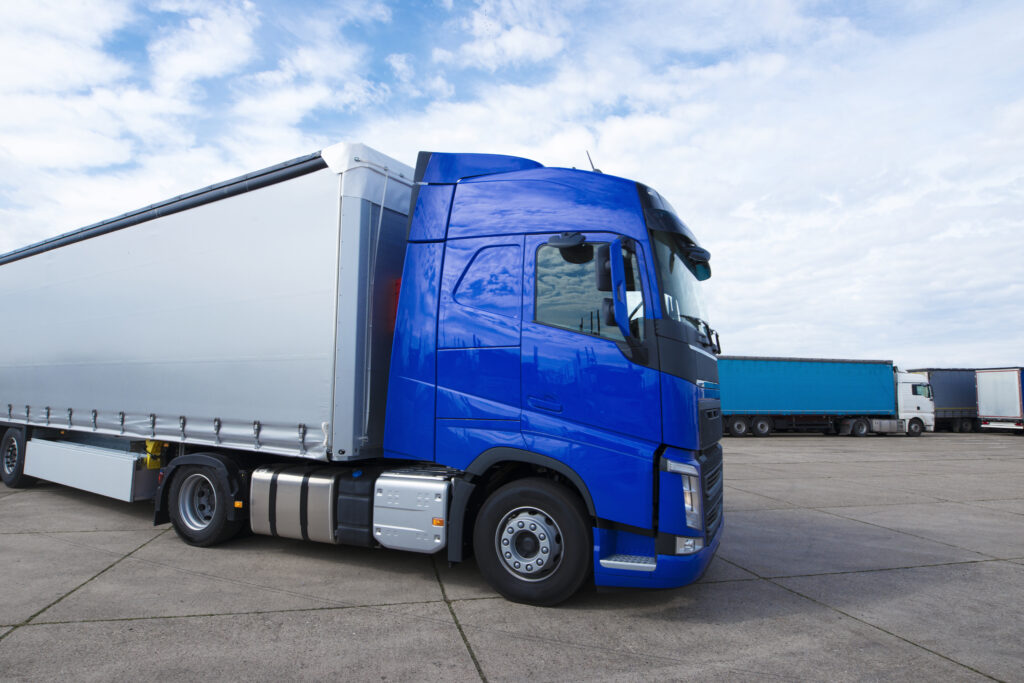In the realm of land-based transportation and logistics, Dry Van plays an instrumental role in ensuring the safe and secure transportation of a vast array of goods. The term “Dry Van” refers to a type of enclosed trailer commonly used to transport dry goods that require protection from the elements. This versatile and widely used mode of transport offers a range of benefits, including cargo protection, ease of loading and unloading, and efficiency in delivering goods across various distances.

Understanding Dry Van Trailers
A Dry Van is a box-shaped trailer typically made of aluminum or steel, featuring a rigid structure with no temperature control capabilities. This type of trailer is fully enclosed, protecting from weather conditions, dust, and debris during transit. Dry Van trailers come in various sizes, with the most common dimensions being 48 feet and 53 feet in length.
The design of a Dry Van trailer allows for the efficient stacking and transportation of palletized or boxed cargo. The walls, roof, and floor are solid and impenetrable, offering a secure environment to transport various goods, ranging from consumer products to industrial materials.
Versatility and Cargo Protection
The versatility of Dry Van trailers makes them ideal for transporting a wide range of dry goods. These trailers can accommodate everything from packaged foods, electronics, and clothing to construction materials, consumer goods, and much more. The enclosed and secure nature of Dry Vans ensures that cargo remains protected and intact throughout the journey, even in adverse weather conditions.
Moreover, the protection from external elements helps maintain the quality and condition of the cargo, which is especially critical for sensitive or perishable goods. Manufacturers, retailers, and distributors rely on Dry Van transportation to preserve the integrity of their products and deliver them to customers in top-notch condition.
Efficient Loading and Unloading
Dry Van trailers are designed for ease of loading and unloading, streamlining the process, and enhancing operational efficiency. Loading docks and forklifts are typically used to load cargo onto the trailer, and the cargo is arranged and secured inside the trailer for transit. The trailer’s design allows for efficient organization of the cargo, maximizing space utilization and reducing the risk of damage during transit.
Upon arrival at the destination, unloading is similarly efficient, making the process smooth and timely. The cargo can be easily accessed, sorted, and unloaded using standard warehouse equipment, contributing to a seamless logistics workflow.
Cost-Effectiveness and Operational Efficiency
Dry Van transportation offers cost-effective solutions for businesses, particularly when compared to specialized transportation methods. Given the broad range of cargo that can be accommodated within a Dry Van, companies can consolidate shipments, reducing overall transportation costs per unit.
Additionally, Dry Van trailers are readily available and widely used, making them a cost-efficient option for businesses seeking reliable transportation solutions. The abundance of Dry Van trailers and their universal compatibility with various cargo types make them a staple in the logistics industry.
Sustainable Practices and Environmental Impact
As sustainability becomes a focal point in global business operations, the transportation industry, including Dry Van logistics, is actively working towards reducing its environmental impact. Initiatives such as optimizing routes, improving fuel efficiency, and incorporating alternative fuels contribute to minimizing the carbon footprint associated with transporting goods.
Additionally, advancements in trailer design and construction are leading to lighter and more fuel-efficient Dry Vans. By enhancing fuel efficiency, the industry is taking steps to mitigate the environmental impact of cargo transportation while still providing reliable and efficient logistics services.
Technological Advancements in Dry Van Transportation
In recent years, technology has significantly impacted the way Dry Van transportation operates. Telematics, GPS tracking, and IoT (Internet of Things) devices are being integrated into Dry Van trailers to provide real-time tracking, monitor cargo conditions (temperature, humidity, etc.), and optimize routes for maximum efficiency.
Advanced data analytics and machine learning algorithms are used to analyze transportation data, predict maintenance needs, and optimize routes for cost efficiency. These technological advancements are enhancing the safety, reliability, and efficiency of Dry Van transportation, aligning with the evolving demands of the modern logistics landscape.
Conclusion
Dry Van transportation stands as a pillar of logistics, ensuring the safe and efficient transportation of a wide array of dry goods. Its versatility, cargo protection capabilities, ease of loading and unloading, cost-effectiveness, and increasing integration of sustainable and technological advancements make Dry Van a vital mode of transport in today’s interconnected world. As the logistics industry continues to evolve, Dry Van transportation remains at the forefront, safeguarding cargo and driving global commerce forward.
